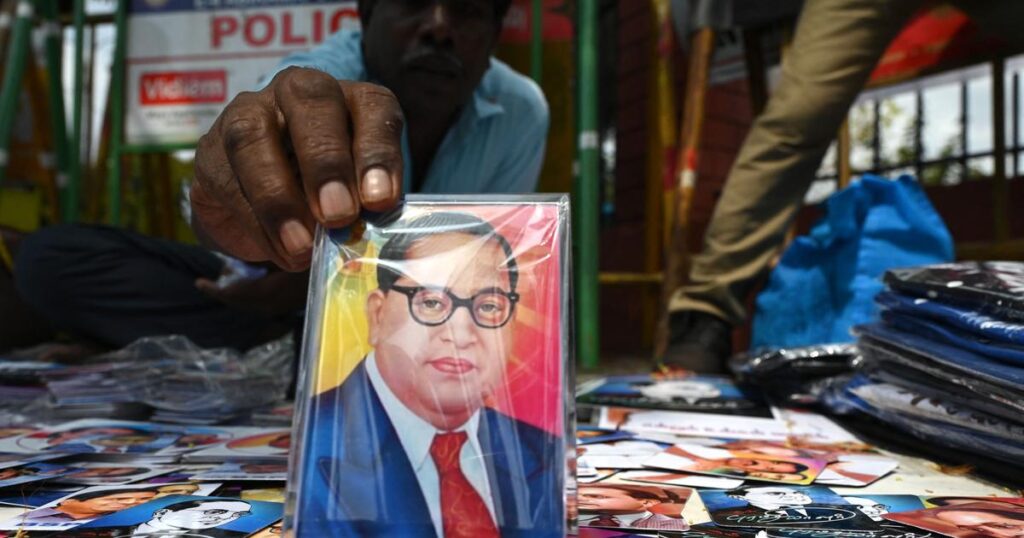April 14 marks the 132nd birth anniversary of B.R. Ambedkar, India’s foremost civil rights leader, scholar, statesman and the most powerful crusader against the inequalities perpetuated by the caste system. From the remotest Indian village to the major cities around the world, Dalit Ambedkarites observe the day as their most important festival. Ambedkar is the only Indian leader whose birth anniversary is celebrated globally by Dalit Ambedkarite groups.
This year is unique because the state of Michigan and Minnesota in the US have officially announced April 9-April 15 as “Social Equity Week.” Likewise, the state of New Hampshire in the US and the City of Burnaby in Canada have declared April 14 the “Day of Equality.” The state of Washington has gone further and decided to observe April 2023 as “Dalit History Month.”
These declarations have instilled a great deal of confidence among the Dalit Ambedkarite diaspora and their struggle to make caste a protected category.
In recent years, Indian immigration to the West has witnessed a phenomenal increase, especially among those in the Information Technology industry. The growth in the overall South Asian population has also resurfaced the caste problem. The problem of caste is, thus, no longer the problem only of the Indian government. For nearly two decades, the Dalit Ambedkarite diaspora has been mobilising in West to highlight the persistence of caste-based discrimination.
For instance, in the United Kingdom, Dalit Ambedkarites took the opportunity of the Equality Bill (which became an Act in 2010) to make their case for prohibiting caste discrimination. However, the opposition from upper-caste Hindu diaspora organisations stalled the inclusion of caste in the Equality Act.
In contrast, Dalit Ambedkarites successfully lobbied in Seattle, which became the first American city to include caste as a protective category. Since December 2022, Brown University, California State University and Harvard University have added a clause to their non-discrimination policy by explicitly prohibiting caste-based discrimination. Several companies in the US have taken similar measures. The Californian senator of Afghan origin, Aisha Wahab, has tabled a bill to outlaw caste discrimination.
Even though these efforts have met staunch opposition from the upper-caste Hindu diaspora organisations, the mobilisations by Dalit Ambedkarite diaspora in the West have received attention and support from other socially marginalised communities and minority groups. Ambedkar has been the central binding force among the South Asian diaspora, who have asserted their right to live in an environment that protects them from caste discrimination. Today, prominent universities in US and Europe and Dalit Ambedkarite organisations will celebrate Ambedkar’s birth anniversary. The Dalit Ambedkarite diaspora is playing a crucial role in installing busts of Ambedkar in various institutions. Through these initiatives, more people outside of South Asia are becoming aware of caste-based practices.
Ambedkar has truly become a global icon to fight injustice. A little over a decade ago, the British newspaper, The Guardian remarked along these lines. The Guardian editorial “Unthinkable? An Ambedkar Memorial” dated April 30, 2011, noted the remarkable journey of B.R. Ambedkar. It detailed Ambedkar’s role in the emancipation of the untouchables and his fight “for a free India, and for the freedom of all castes within that state”. It concluded that Ambedkar’s “message intended for 20th century India, is just as relevant for 21st century Britain” and proposed a public memorial to him in Great Britain. (Guardian editorial given below.)
A decade later, one can safely argue that Ambedkar’s message is not only relevant to Great Britain but also globally significant where the South Asian diaspora exists. A public memorial of Ambedkar in the West, especially where Indian diaspora is present in large numbers, would play a vital role. It would remind the world that a deeply hierarchical, exploitative and unequal structure such as the caste system can be challenged through democratic means.
(Sumeet Mhaskar is a Professor of Sociology at OP Jindal Global University in India. Courtesy: Scroll.in.)
❈ ❈ ❈
Editorial: The Guardian, 30 Apr 2011
Unthinkable? An Ambedkar Memorial
Among the most tiresome of all observations made about the royal wedding was that it represented some kind of triumph of social mobility. The new Duchess of Cambridge is the great-great-granddaughter of a coalminer, runs this story, and her mother worked as an air hostess. Never mind that she also went to Marlborough College. Such cant brings to mind a more potent example of social mobility – and of that mobility being put to significant purpose. Bhimrao Ramji Ambedkar was born in 1891, an untouchable in an India run by the British – that is to say a subaltern twice over, subjugated by an imperial government and by high-caste Indians. He died in 1956, with doctorates from Columbia University and the LSE. Most importantly, he will be remembered as the emancipator of other untouchables and the jurist in charge of drafting the constitution of the Indian republic. Ambedkar fought for a free India, and for the freedom of all castes within that state. He sought advancement not just for himself, nor for those like him, but also for Brahmins, Muslims, Sikhs and Buddhists. His time at the bar in London and at the LSE, but most of all his sterling example, surely make him more than deserving of public memorial here. “How long shall we continue to deny equality in our social and economic life?” asked Ambedkar. “If we continue to deny it for long, we will do so only by putting our political democracy in peril.” His message, intended for 20th-century India, is just as relevant for 21st-century Britain.




